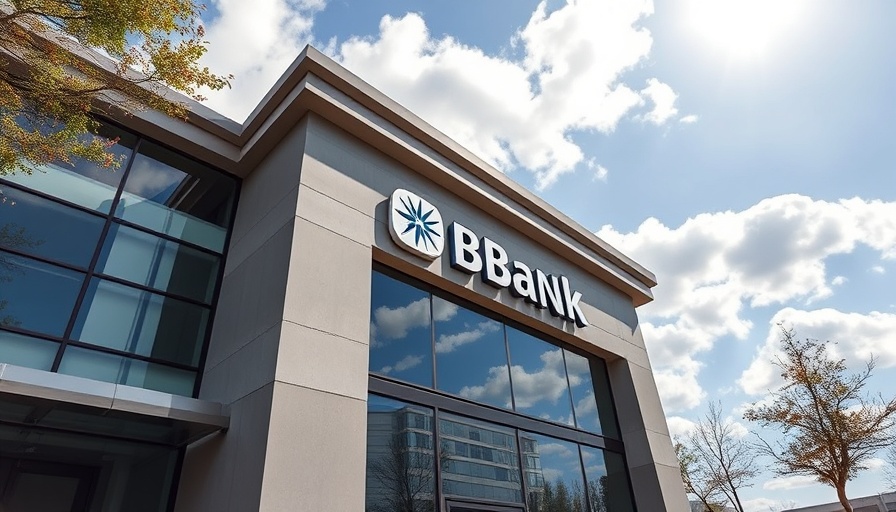
Centennial Bank Settles for $5.2 Million After Data Breaches
In a reassuring development for customers affected by data breaches, Centennial Bank of Conway has reached a $5.2 million settlement in response to a class-action lawsuit. The lawsuit, which consolidated three cases, accused the bank of negligence for failing to adequately protect sensitive customer data. This settlement comes just as a court hearing is scheduled for May 22, 2025, to finalize the agreement. Importantly, under the settlement's terms, Centennial Bank does not admit any liability or wrongdoing.
Understanding the Data Breaches
The breaches that triggered the lawsuit occurred during two significant incidents, one in July 2022 and the other in April 2023. During the first breach, unauthorized access to a former employee's email account exposed the personal information of approximately 17,000 customers. The second breach was far-reaching; hackers accessed the bank's network through Happy State Bank, a Texas institution acquired by Centennial's parent company, Home BancShares, resulting in the exposure of data belonging to roughly 955,000 individuals.
The Legal Claims: What Were They?
The class-action suit aimed to hold Centennial Bank accountable for alleged negligence, breach of implied contracts, and unjust enrichment. Plaintiffs claimed that the bank's failure to encrypt sensitive data and its delay of up to seven months in notifying affected customers about the breaches was unacceptable. Such lapses raised significant concerns about how businesses handle and protect consumer information in a digital world where data is increasingly vulnerable to breaches.
The Value of the Settlement: Who Will Benefit?
Under the settlement, class members with documented losses may receive reimbursement of up to $4,000 each for expenses related to the data breaches, which could include costs for identity theft protection or credit monitoring. Additionally, non-documenting losses could qualify for a flat $50 payment. This arrangement underscores not only the potential financial impact of data breaches on individuals but also the need for accountability from financial institutions.
Preventing Future Breaches: Lessons Learned and Action Steps
This incident serves as a critical reminder of the importance of data security in the banking sector. In response to the breaches, Centennial Bank has reported spending nearly $244,000 on remediation efforts and cybersecurity enhancements. These actions indicate a recognition of the vulnerabilities within existing systems and a commitment to improving data security practices.
What Can Customers Do?
For individuals possibly affected by these data breaches, it is crucial to stay informed about their rights and the resources available to them. Class members should ensure they file their claims by the deadline of May 6, 2025, to receive any available compensation. Keeping personal information secure and monitoring financial statements regularly can further help mitigate risks associated with data breaches.
Looking Ahead: The Future of Financial Data Security
The increasing frequency of data breaches raises pressing questions about the future of data security practices within financial institutions. As technology evolves and becomes more integrated into banking, both customers and institutions must be vigilant. Predictions suggest that regulatory frameworks governing data protection will tighten in response to ongoing breaches, leading to stricter compliance requirements for banks.
The Centennial Bank case exemplifies significant issues facing our increasingly digital world, where the safety of personal information hangs in the balance. As these cases unfold, it is essential for individuals to advocate for stronger data protection laws and practices. Given the importance of financial security, community awareness and actively holding banks accountable will be pivotal in shaping a safer banking experience.
 Add Row
Add Row  Add Element
Add Element 


 Add Row
Add Row  Add
Add 


Write A Comment